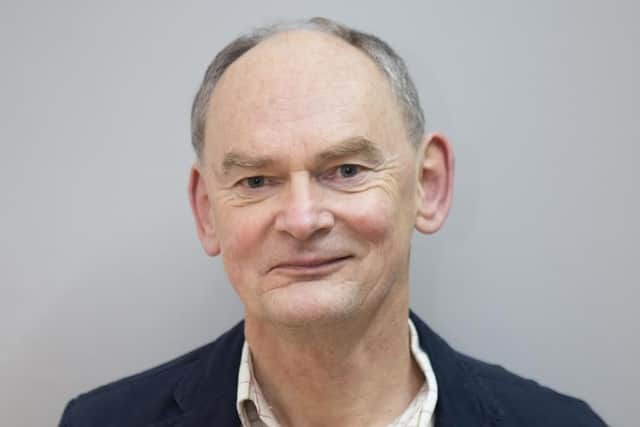Why the new North Yorkshire Council looks set to start off on the wrong foot - Andy Brown
At other times what takes place can be rather less impressive. It is all too easy for Council chambers to become the scene of sharp divisions and attempts by one political party to grab all the power or oppose decisions regardless of their merit.
When it comes to determining which kind of atmosphere dominates in a particular locality a lot depends on how the local council is set up. If there is a system that helps to draw people together to make collective decisions, then there is likely to be a lot of cooperation and limited political competition. If one party tries to exercise too much control over decision-making then others tend to find that all they can do is to criticise powerlessly from the side lines.
Advertisement
Hide AdAdvertisement
Hide AdWhich is why it is so disappointing that the new North Yorkshire Council looks set to start off on the wrong foot. Instead of building a system which will enable all sides to contribute to effective decision making, it is going to begin life with a system that enables one party to exert a remarkably high degree of control. Without having gained a majority of the votes.


In elections to select the councillors to sit on North Yorkshire the Conservative Party recorded 40 per cent of the popular vote whilst other parties received the support of 60 per cent of the electorate. Yet, because of the eccentricities of the first past the post methodology, the Conservatives now hold 46 of the available seats whilst the other parties have only 44.
Any reasonable person might expect that with such a finely balanced Council care would be taken to ensure that there was a degree of power sharing. This is normally achieved by establishing a system of committees that reflect the overall balance of seats and which reach decisions after discussion between differing views. The different views that are represented ensure that ideas are challenged and strengthened before they are turned into policy.
In North Yorkshire Council a system has been set up that allows the party that received 40 per cent of the votes to have 100 per cent of the power. An Executive will make all the key decisions. Only one political party will sit on that Executive and the decisions that it takes will then be put for confirmation to an overall council where the small controlling majority of seats will usually prove sufficient to secure approval.
Advertisement
Hide AdAdvertisement
Hide AdIn such circumstances one might imagine that there would be a strong independent scrutiny system to ensure that decision making is tested and to ensure that service standards are at the highest possible level. In North Yorkshire all bar one of the new Scrutiny Committees are to be chaired by a member of the party that controls the Executive.
In other words, the leadership of scrutiny is expected to be provided by the same political party that makes the decisions which are being scrutinised. Not exactly a model of democracy.
When it comes to meetings of the overall Council things aren’t massively better. One of the few powers that opposition Councillors have is the ability to put forward a motion that might influence policy. Any two councillors can do this but the system which is being set up for the new North Yorkshire Council is that they will normally have to wait for months before the topic they want discussed comes before the council. Properly proposed and seconded motions won’t be discussed by the council until they have been examined by the one party Executive and a recommendation brought back to the full council before any of the arguments of those wanting change have been heard.
Getting a variety of views heard will also be made difficult by one of the other parts of the new North Yorkshire Council’s system. Members of the Executive can only be asked questions by elected councillors for a maximum of five minutes once every three months. That makes it incredibly difficult to explore important local issues and leaves opposition councillors restricted to a few short opportunities to test the wisdom of policies or to air concerns of those who elected them.
Advertisement
Hide AdAdvertisement
Hide AdSuch guillotines on debate don’t augur well for the future. Much has been heard about devolving power to local councils and giving communities a greater say in their own future. This feels like the opposite.
Long periods of unchallenged rule by one party rarely make for good local government. Whatever that party is. It remains to be seen whether the new North Yorkshire Council can succeed in overcoming the shortcomings of a system which has been designed to provide four years of control by a party that lost the popular vote in the elections.
Andy Brown is a Councillor on the new North Yorkshire Council and is a member of the Green Party. He represents Aire Valley.